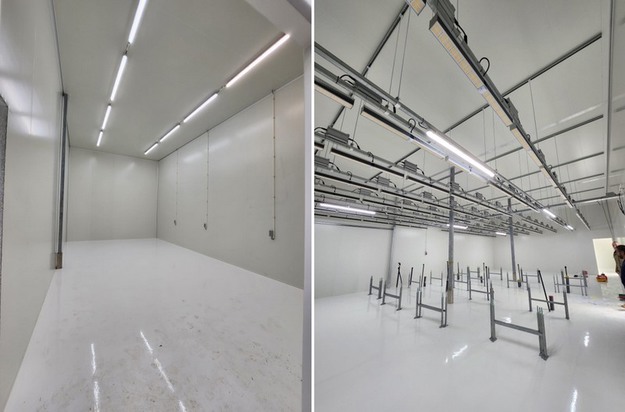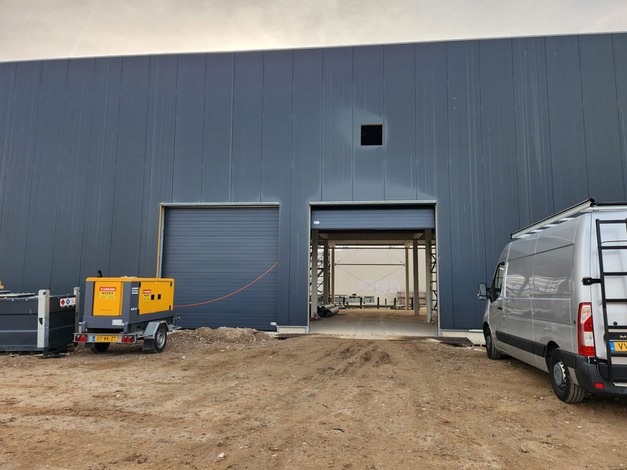“We see great potential in the Dutch cannabis market. On top of the tradition and economy we have here, we don’t have the disproportionate cannabis taxes or the easy access to licenses that other markets have to deal with,” says Corné Melissen, Founder of Kenzoll Capital and Chairman of Hollandse Hoogtes, one of the 10 licensed growers in the Dutch closed coffeeshop chain experiment. Hollandse Hoogtes is currently in the last phase of constructing their facility. “I think we are very well positioned in the experiment, combining our corporate capabilities with cannabis knowledge. We have a great indoor facility and a careful selection of cannabis experts on our team.”
Hollandse Hoogtes' facility
From Zimbabwean roses to Dutch cannabis
The whole Dutch story actually starts in Zimbabwe. Corné met an entrepreneur there with a successful rose company: Aart Nugteren of Luxaflor Roses. “Under very challenging circumstances, he was able to build this successful company. When he said medical cannabis would become legalized in Zimbabwe, and he was looking for financing, we decided to jump on board.” That is how Kenzoll became the majority shareholder of Luxacan, a GACP-compliant medical cannabis producer in Zimbabwe. “When he also mentioned the potential of the Dutch closed coffeeshop experiment, we started looking into a Dutch license.”
Not an easy feat
Yet obtaining one of the 10 Dutch licenses turned out to be quite a challenge. “We joined the lottery but didn’t win. Then we bought someone’s license, but it got revoked by the government. We bought a second license that also got revoked. But the third time was the charm: we were successful with the third license we bought, which is now the company called Hollandse Hoogtes.”
It is well known that the Dutch coffeeshop experiment has gone through lots of delays and has received its fair share of criticism. In Corné’s opinion, the lottery selection process could have been done better. “I think the fact that it was a lottery was not the best choice. It would have been a more professional process if you got picked based on your capabilities and access to capital. Some people who initially got a license didn’t have any financing. These cannabis projects cost tens of millions of dollars. So if you can’t prove that you have the capability to access the financial means necessary for that, it’s strange that you still got picked to participate.”
Yet now that the selection process is over, Corné is excited about the future of Hollandse Hoogtes and the Dutch cannabis market. “It’s high time that the Dutch tolerance policy comes to an end and we make way for a legalized market. I think that with the 10 growers, once they’re all done, a great market can be set up.” Hollandse Hoogtes’ construction is expected to be finished in Q1 of 2024.
For more information:
Kenzoll Capital
www.kenzoll.com
